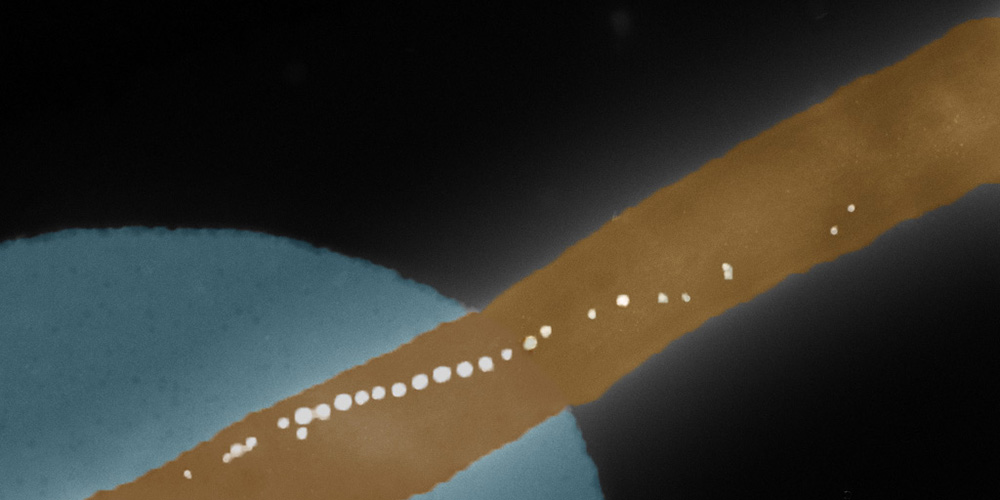Seven SNSF Starting Grants for the University of Basel
The Swiss National Science Foundation (SNSF) has awarded seven Starting Grants to University of Basel researchers. The projects come from the fields of philosophy, ancient civilizations, chemistry, biomedicine, pharmaceutical science and public health.
24 November 2022
Switzerland is still considered a non-associated third country in the EU’s Horizon Europe research program. The Swiss Government has therefore mandated the SNSF to continue their transitional measures. The SNSF Starting Grant 2022 Call temporarily substituted the ERC Starting Grants on the one hand and replaced the SNSF Eccellenza scheme on the other hand.
With their Starting Grants, the SNSF supports outstanding young researchers in Switzerland and enables them to lead a research project with their own team. Grantees at the pre-professorial stage of their careers will receive an appointment as assistant professor.
Of a total of 62 research projects supported by the SNSF, seven will go to the University of Basel. The scientists will be supported by the SNSF with an average of CHF 1.7 million over a period of five years.
- Prof. Dr. Murielle Delley has been an assistant professor at the Department of Chemistry at the University of Basel since 2021. Prior to that, she conducted research at Yale University, USA and ETH Zurich. With her SNSF project, Delley aims to pave the way for a more sustainable production of chemicals. To this end, she is researching heteroatomic defects in cobalt sulfides and oxides, which could be the key to a more efficient electrocatalysis.
- Dr. Samuel Fuhrimann received his PhD from the University of Basel in 2015. After working as a postdoc in South Africa and the Netherlands, he will conduct his SNSF-project at the Swiss Tropical and Public Health Institute (Swiss TPH). His goal is to characterize the pesticide exposome and related health risks as well as benefits of living and working on a farm. Fuhrimann wants to generate evidence of health and well-being impacts of the transition to sustainable agriculture in Switzerland and globally.
- Dr. Emma Hodcroft returns to the University of Basel after a two-year postdoc in Bern and Geneva. She is co-developer of the “Nextstrain” program, which allows virus outbreaks to be tracked in real time. She will use Nextstrain for her SNSF project to study enteroviruses at the Swiss TPH. These endemic viruses are encountered throughout our lives in the form of the common cold, but are also responsible for many other globally occurring diseases. Using viral genetics, immunology, and modelling, Hodcroft will study how they evolve, spread, and cause disease.
- Dr. Sabine Hohl was previously a postdoctoral researcher at the Department of Philosophy at the University of Bern. For her SNSF-funded project, she will now move to the Department of Arts, Media and Philosophy at the University of Basel. In her research, she is concerned with the concept of parenthood in our society. She focuses in particular on the normative understanding of the term “parenthood” and develops a new, liberal-egalitarian approach that also includes newer forms of families.
- Dr. Isabelle Marthot-Santaniello has been working at the Department of Ancient Civilizations at the University of Basel since 2015 as a research associate and SNSF Ambizione Fellow. With her Starting Grant, she will investigate the development of handwritings in Greco-Roman Egypt. For this project, situated in the field of digital paleography, Marthot-Santaniello is building new tools to determine and date ancient manuscripts on papyrus.
- Prof. Dr. Anne-Katrin Pröbstel has been a SNSF Eccellenza Professor at the Departments of Biomedicine and Clinical Research at the University of Basel since 2021. She is also a senior physician in the Neurology Department and member of the executive team of the Research Center for Clinical Neuroimmunology and Neuroscience at the University Hospital Basel. She investigates the interaction between the gut microbiome and immune cells in multiple sclerosis (MS). In her SNSF project, she focuses on the development of novel immune therapies that aim to modify B lymphocytes and gut microbiota in MS.
- Dr. Linda Simmler studied Pharmacy at the University of Basel, where she received her PhD in 2013. Simmler continued her research in the USA and at the University of Geneva. Her SNSF project at the Department of Pharmaceutical Science at the University of Basel investigates the hallucinogen psilocybin and its use as an antidepressant. The compound, classified as a narcotic, has great potential in the treatment of severe depression and other mental illnesses. Simmler wants to find out how exactly psilocybin affects our brain and mechanistically explain the clinical effect.


